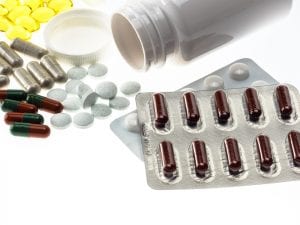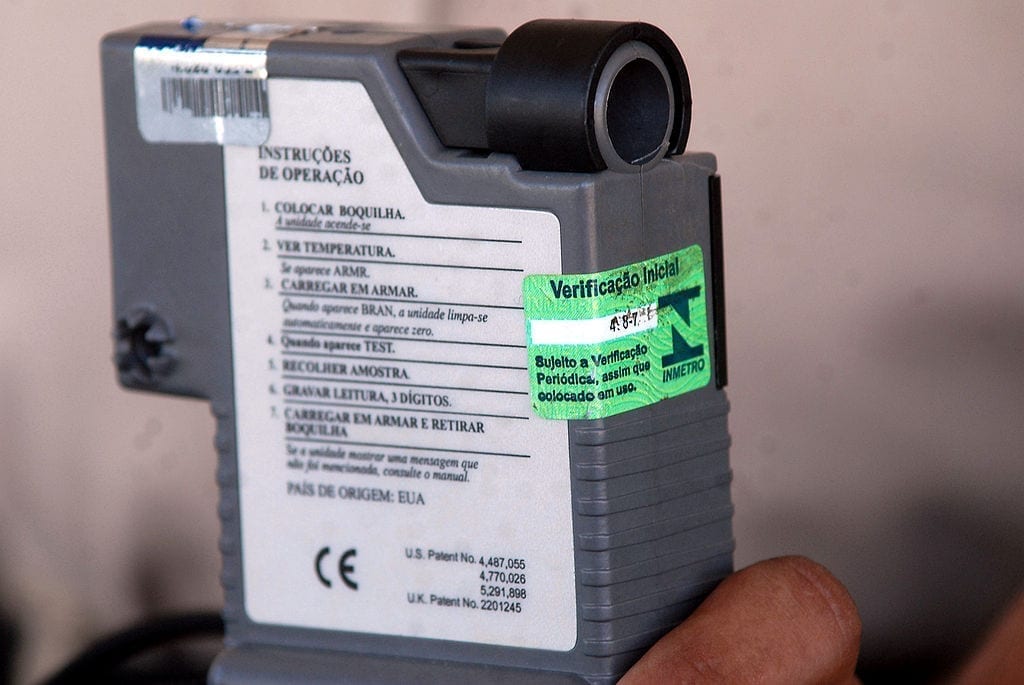Medication can cause false breathalyzer results.
Criminal defense lawyers in Columbus, Ohio, understand that while breathalyzer tests are generally reliable, certain factors can cause erroneous readings. Thus, if you believe you have been wrongly accused based on a false positive on a breathalyzer test, it’s helpful to understand what could’ve gone wrong, what to do going forward, and how a criminal defense lawyer can help prove your case. Driving under the influence is a serious charge with severe consequences, so it’s crucial that you know your legal rights and what the law can do for you.
What are Breathalyzer Tests?
Breathalyzers are tools that are frequently used by police officers to see if someone is past the legal limit for alcohol consumption. When someone fails one of these tests, they can face criminal charges related to being intoxicated, usually related to driving under the influence. These tests are some of the best evidence a prosecutor can use to show that a person was intoxicated, so understanding how these tests work. Their limits is crucial for lawyers and clients when they’re assembling a defense case.
How Do Breathalyzer Tests Work?
A breathalyzer test requires a person who is believed to be intoxicated to blow into a tube so that it can determine the amount of alcohol on their breath. The machine then translates the number into your B.A.C., which is the concentration of alcohol in a person’s blood. This number is then used to determine if someone passes the threshold for being over the legal limit of alcohol.
How Reliable Are Breathalyzer Tests?
Breathalyzer tests are generally considered to be reliable, but they may not be as reliable as people think. Studies have shown that these tests have up to a fifty-percent margin of error when compared to a person’s actual blood alcohol content. These tests may be especially inaccurate for certain people and under certain circumstances. In Ohio, the legal limit is .08 for most drivers. Commercial drivers must have a B.A.C under .04.
What Can Cause a Breathalyzer Test to Be Wrong?
The first thing you should note is that breathalyzer tests are very rarely wrong. They have high accuracy rates; however, there are certain scenarios that may cause these tests to give inaccurate results, which you may want to keep in mind.
Medication can cause false breathalyzer results. For example, cough medicines may linger in your mouth and create a higher-concentration of alcohol in your breath than is in your lungs. The same can be true of mouth washes. Mouth washes often have low amounts of alcohol, and you spit out most of the contents of the alcohol. However, the mouthwash can linger in your breath and can make it seem like you’re intoxicated, even when that is not the case.

Some foods can cause a positive even when you haven’t had any alcoholic beverages. For example, sugar-free foods often have sugar alcohols, and these sugar alcohols may correlate with positive test results. When you eat overly ripe fruits, they may add alcohol to your breath. Fermented foods or beverages can have the same impact. Thus, even non-alcoholic beer can make you seem like you have had alcohol. Your actual B.A.C. will not be heightened by these foods and beverages, but the breathalyzer will pick up the compounds on your breath. You may also have foods prepared with alcohol that can cause false readings. Therefore, many situations can cause false positives because of what you eat.
You may also have a health condition that causes your breath to confuse the breathalyzer machines. Diabetics, for example, have higher acetone levels, and because the test cannot tell the difference between ethyl alcohol and acetone, their breathalyzer test results may be inaccurate. Additional acid reflux can cause alcohol to be pushed back up from someone’s digestive system. As a result, someone can have more alcohol concentration in their breath, which doesn’t reflect the alcohol actually in their blood.
Beyond the food, drink, and medical factors that can make your reading higher than it should be, there are also technological and maintenance factors that can cause your reading to be wrong. Environmental factors can be another element that leads to a false positive. If certain chemicals are in the air around you, the test may be compromised.
The first issue that can cause an erroneous reading is improper calibration. Police officers have to be sure that they maintain breathalyzer devices and recalibrate them regularly. They should check to make sure their devices are working as they should, and they must be certified before they can use a breathalyzer. Accuracy tests should have readings that are within .02. If proper calibration is not present, an attorney can suggest that the readings should not be admissible.
Some machines may also experience interference from radio frequencies. Police officers are often close to transmitters and radar units, and radio. The waves from these devices can cause electromagnetic interference that can interfere with breathalyzer accuracy. Thus, seeing if electronic interference is a possibility is a step a lawyer can take.
If you are around certain chemicals, your breathalyzer reading may be off. A breathalyzer cannot measure how much alcohol is in your blood. Instead, they determine your B.A.C. by using a formula in addition to a reading of how much alcohol is in the air. Unfortunately, the tests cannot always tell the difference between alcohol and other compounds. For example, people who work with cleaning fluids, cement, varnish, gasoline, oil-based paint, or other chemicals may experience false positives because of chemical fumes on their breath.
The breathalyzer machine isn’t designed perfectly, and while it is often accurate, certain situations can make the reading from a breathalyzer test inaccurate and create false positives. Thus, you should keep these situations in mind if you have had a false positive and you haven’t been able to figure out why.
Legal Experts Can Help
A lawyer can help their clients build a case and understand how a breathalyzer test may have failed. If you believe you have gotten a false positive for your breathalyzer test, criminal defense lawyers in Columbus, Ohio, can give you additional information and help you understand your options based on the specifics of your case.


Join the conversation!